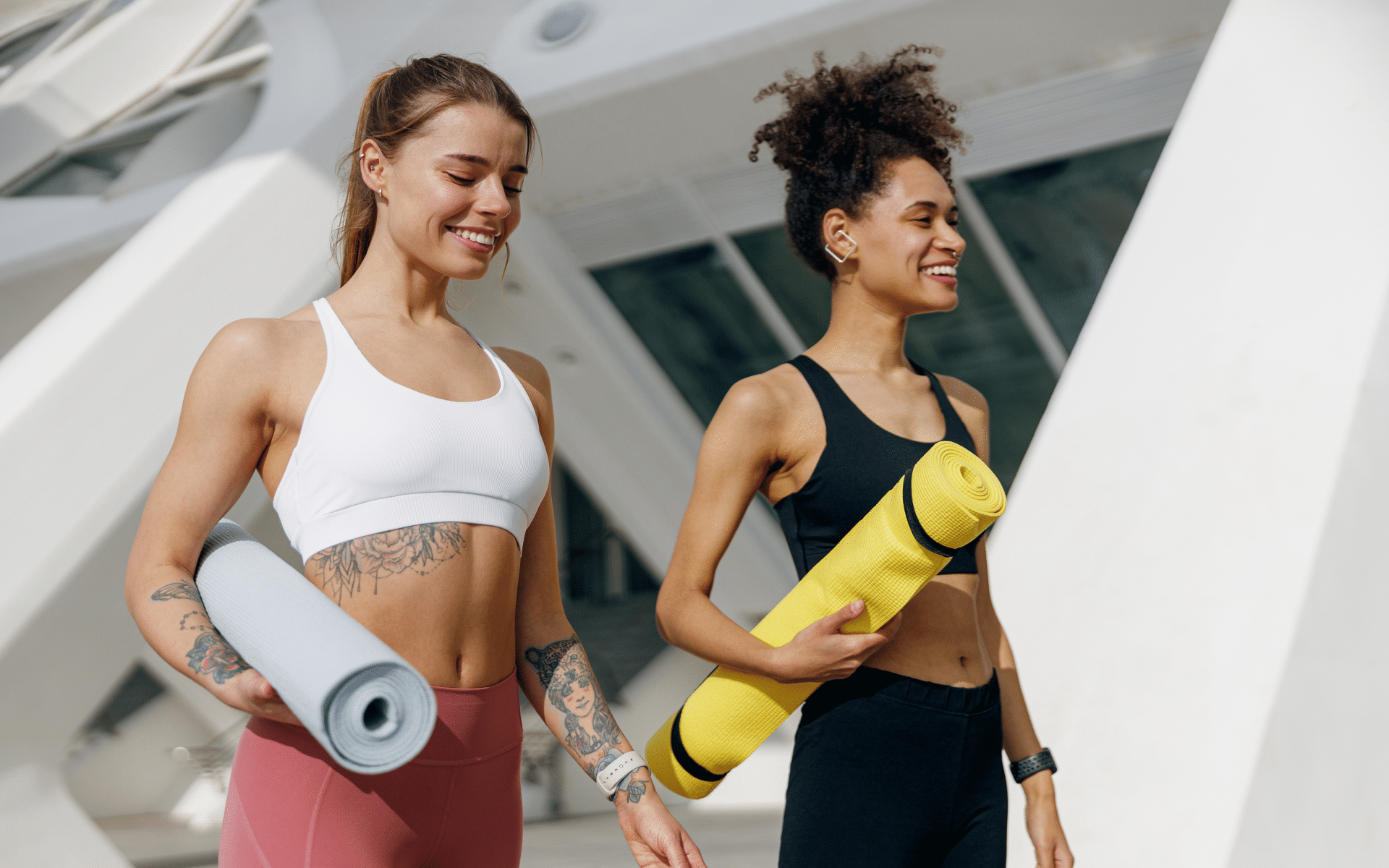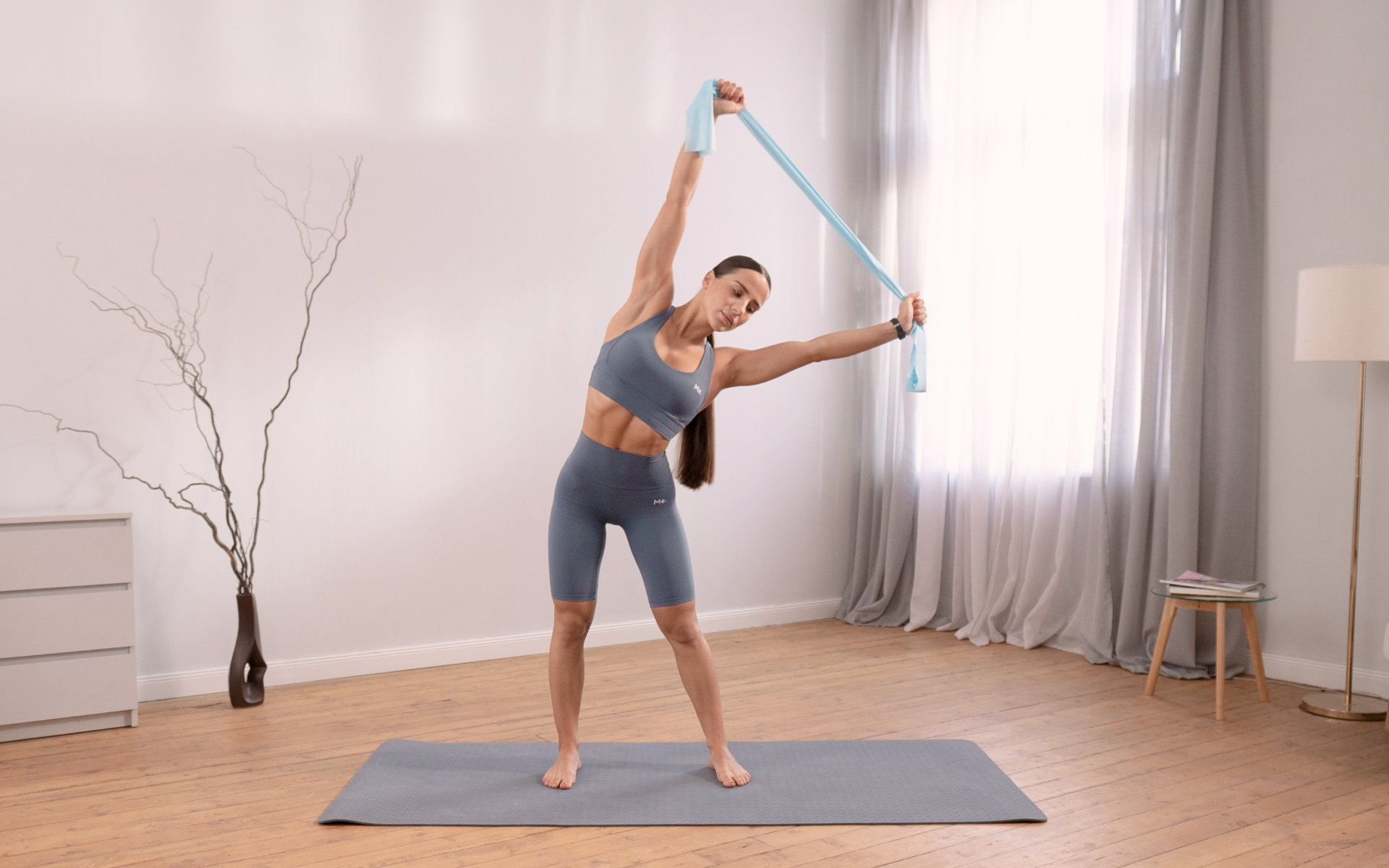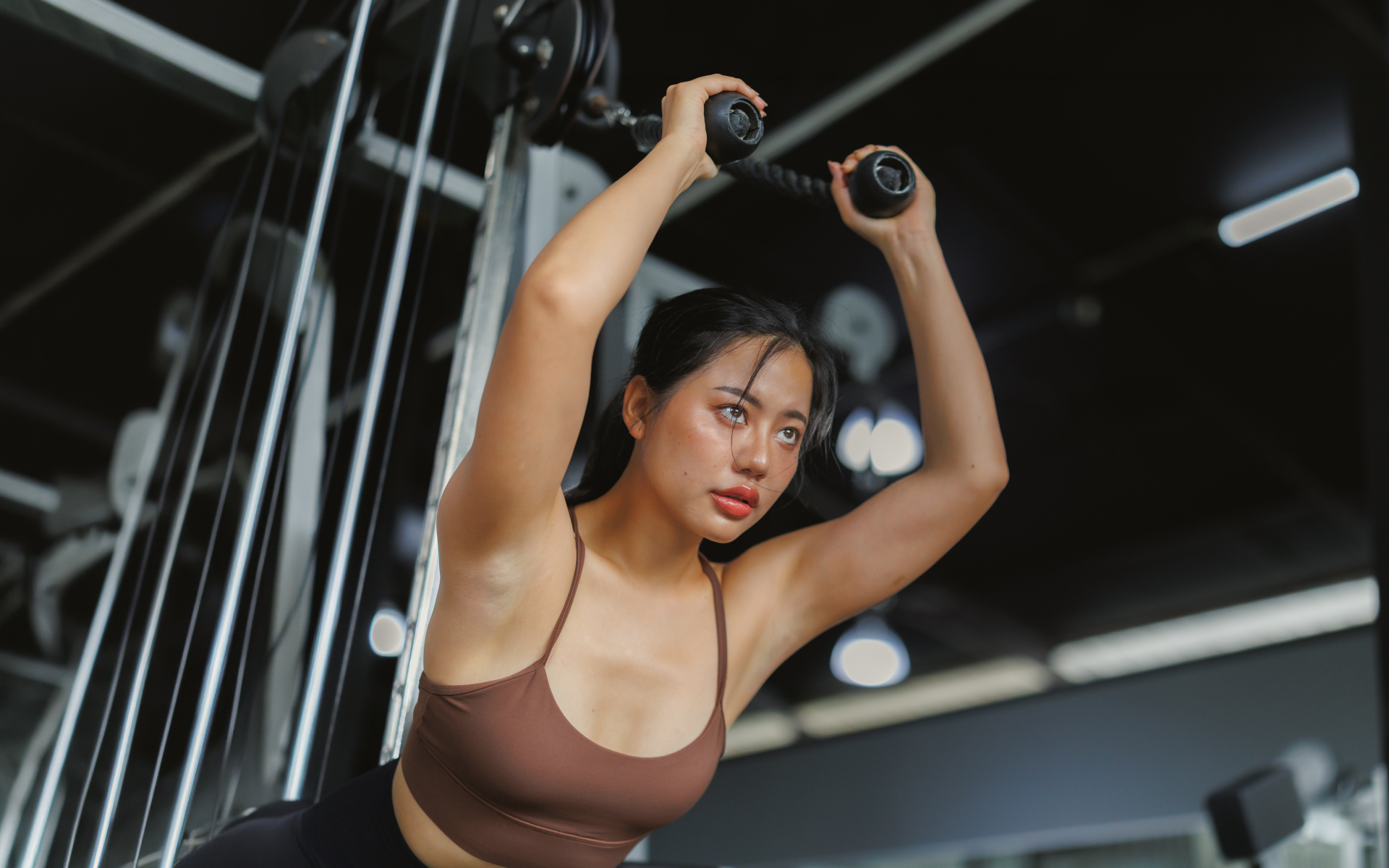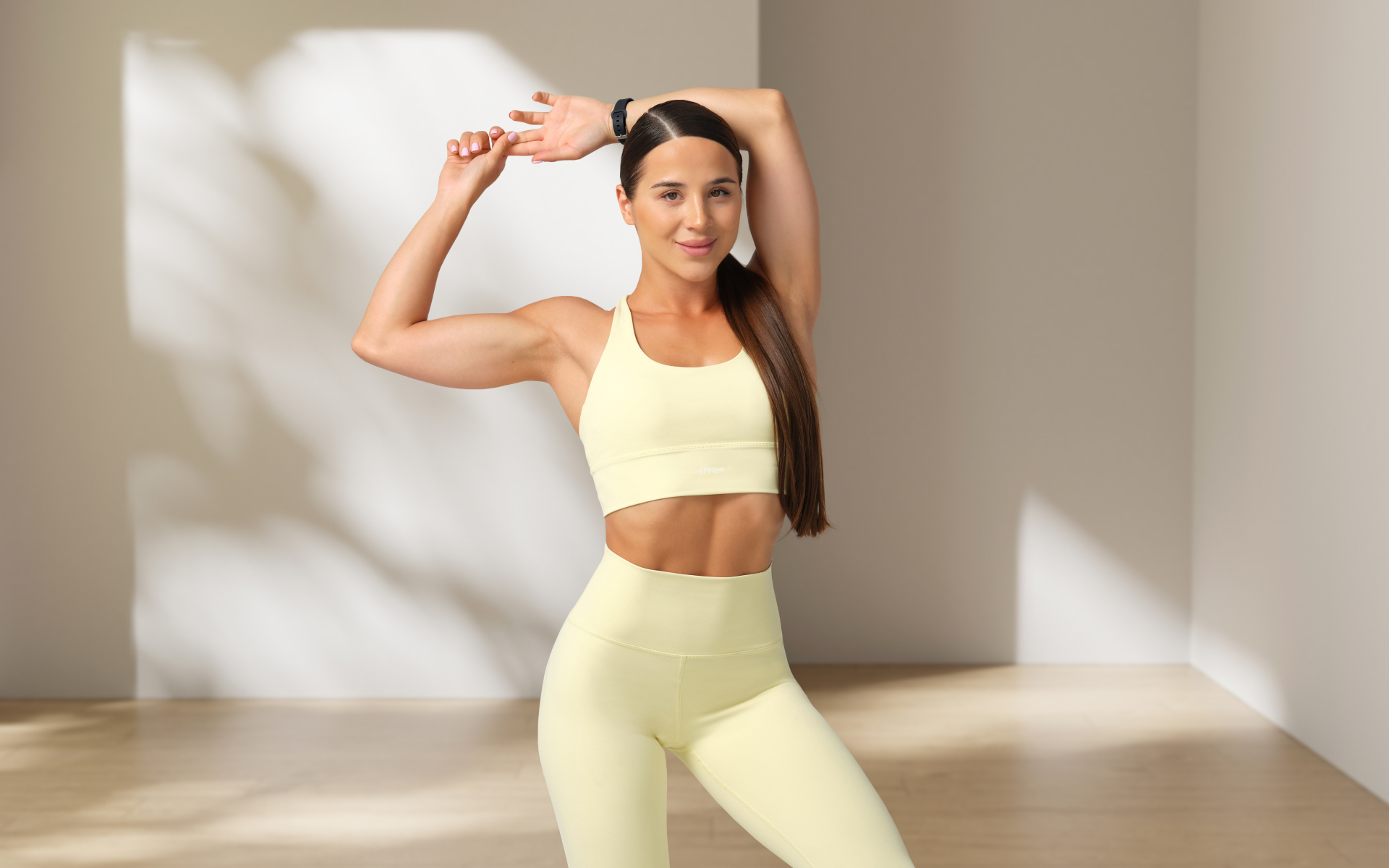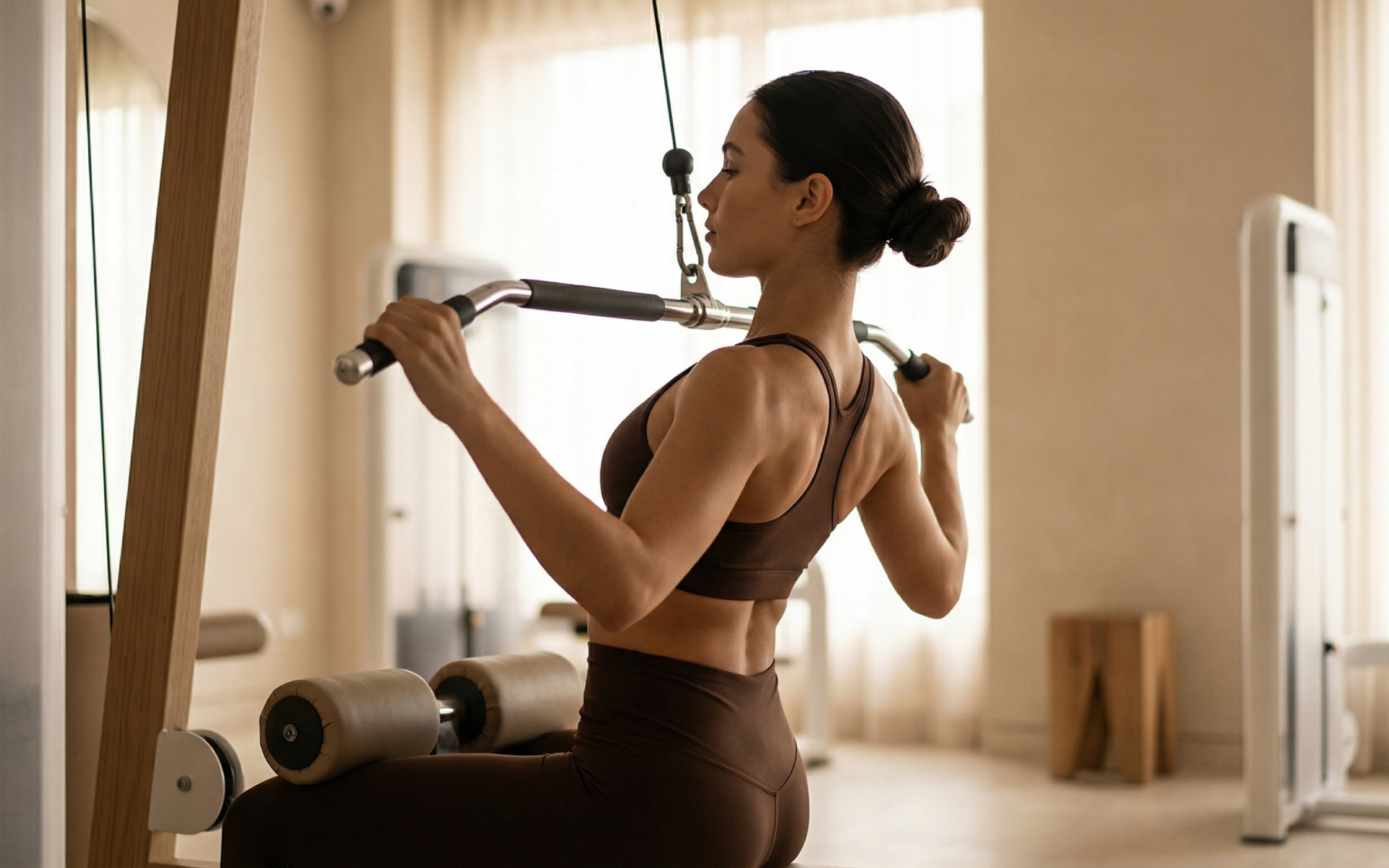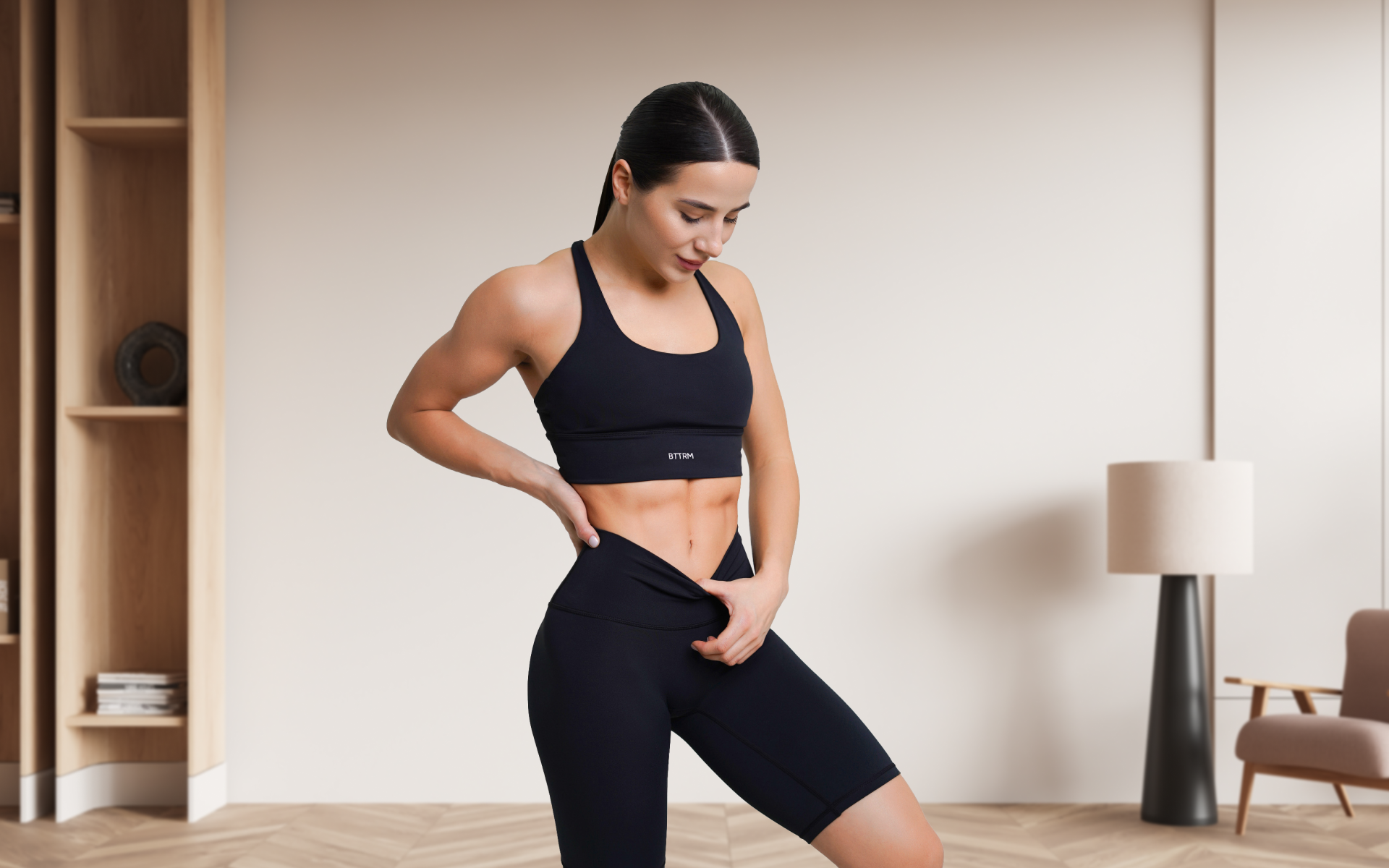A woman’s menstrual cycle is one of the most common reasons for skipping a workout. Your period can bring along with it discomfort, cramps, and mood swings that make you want to curl up in bed all day. But should you really skip your workouts during this time? Is it safe to exercise when on your period?
Research has shown that exercise can actually be beneficial during your period. Not only can it help alleviate period symptoms, it can also boost your mood and energy levels (1).
However, there’s much more than benefits to consider when deciding whether to work out on your period. There’s your body’s physical changes, your menstrual cycle phase, and personal preferences to take into account.
Here’s everything you need to know about working out during menstruation.
Should You Work Out on Your Period?
Yes, you should work out on your period. It’s beneficial, but working out during your period shouldn’t cost you your comfort or health. That’s why it’s important to listen to your body and make adjustments accordingly.
During your period, your body goes through various changes that can affect how you feel during a workout. These changes include:
- Fluctuations in hormone levels: Estrogen and progesterone levels fluctuate during the menstrual cycle (2), which can impact muscle strength, coordination, and energy levels.
- Increased sensitivity to pain: Due to higher levels of prostaglandins (hormones that cause cramps), some women may experience increased sensitivity to pain during their period (3). This could make certain exercises more uncomfortable than usual.
- Bloating and water retention: Many women experience bloating and water retention during their period (4), which can lead to feeling heavier or sluggish during workouts.
- Fatigue: Some women may experience fatigue due to hormonal changes and heavy bleeding during menstruation (5).
Knowing how these changes can affect your body can help you make adjustments to your workout routine.
For example, on days when you’re feeling more fatigued or experiencing increased pain sensitivity, it’s important to listen to your body and take it easier with your workout. Don’t push yourself too hard and risk injury.
That being said, research has shown that working out on your period can actually help alleviate some of these symptoms.
Here are some benefits of exercise during your period: (1)
- Reduces menstrual cramps
- Increases energy levels
- Reduces bloating
- Enhances overall well-being and mental health
- Improves sleep quality
- Boosts circulation and reduces fatigue
- Decreases stress and anxiety
- Helps maintain a healthy weight
Looking for a way to break the vicious cycle of weight loss and tone up all the jiggly parts? Watch the extra pounds fly off and your muscles firm up with the BetterMe: Health Coaching app!
Reduces Menstrual Cramps
Research has shown that exercise can help reduce the severity and frequency of these cramps. During exercise, the body releases endorphins, which act as natural painkillers and can help alleviate menstrual cramps (6).
Increases Energy Levels
While it may seem counterintuitive, exercise can actually increase energy levels during menstruation. It helps improve blood flow and oxygen circulation, which can help reduce feelings of fatigue. In addition, the release of endorphins can also boost energy and mood.
Reduces Bloating
Bloating is a common complaint during menstruation, which is often caused by hormonal changes that lead to fluid retention. Engaging in physical activity can significantly help mitigate this uncomfortable sensation.
When you exercise, your body enhances blood circulation and promotes lymphatic drainage, which can help reduce fluid retention. Activities such as walking, jogging, or even gentle yoga can help alleviate bloating by helping with the reabsorption process of sodium and water (1).
Enhances Overall Well-being and Mental Health
Exercise isn’t only beneficial for physical health, but it also has a positive impact on mental health (7). During menstruation, many women experience mood swings and feelings of irritability or anxiety. Exercise can release endorphins, which act as natural mood boosters and help reduce stress and anxiety.
Improves Sleep Quality
Research has shown that regular exercise can improve sleep quality (8), and this applies even during menstruation. Engaging in moderate physical activity can help alleviate pain or discomfort that may interfere with sleep, leading to a better night’s rest.
Boosts Circuclation and Reduces Fatigue
During menstruation, the body experiences changes in blood volume and circulation. Exercise can help improve blood flow, delivering oxygen and essential nutrients to the muscles, which can reduce fatigue and increase energy levels.
Decreases Stress and Anxiety
The release of endorphins during exercise not only helps with pain relief but also has been linked to reducing stress and anxiety. (8) In addition, focusing on your period workout routine can serve as a distraction from negative thoughts or discomfort associated with menstruation.
Helps Maintain a Healthy Weight
Many women experience weight fluctuations during their menstrual cycles, often due to hormonal changes and water retention (9). These fluctuations are temporary, but engaging in regular physical activity can help maintain a healthy weight and reduce the risk of weight gain before, during, and after menstruation.
Read more: Fasting While On Period – Does It Have Any Benefits? What Science Says
Should I Exercise Differently on My Period?
If you find yourself experiencing more discomfort or fatigue during exercise when on your period, you should change your routine accordingly. This could mean incorporating more low-impact exercises such as yoga or pilates, or simply reducing the intensity of your usual workouts.
It’s also essential to listen to your body and take breaks when needed. Don’t push yourself too hard, and remember that it’s okay to modify or skip certain exercises if they feel uncomfortable during this time.
The best exercises to do during your period are those that promote gentle movements, improve circulation, and relax the body. Some good options include:
1. Yoga and Stretching
Yoga and stretching are excellent exercises during your period because they help reduce menstrual cramps, alleviate stress, and improve mood (10).
Gentle yoga poses such as cat-cow, cobra pose, and supine twist can relieve tension in your muscles and promote relaxation. Stretching improves blood flow and can alleviate cramping and lower back pain, making you feel more comfortable during your cycle.
2. Walking
Walking is a simple but effective exercise that can ease cramps and bloating, boost mood, and improve circulation. It’s a low-impact activity that allows you to stay active without overexerting yourself.
Taking a brisk walk outdoors also provides the added benefit of fresh air and a change of scenery, which can be refreshing and uplifting.
Find out more about the benefits of walking during your period in our previous post – Does Walking Help Period Cramps?
3. Swimming
Swimming offers a full-body workout that reduces menstrual pain and promotes relaxation (11). The buoyancy of water supports your body, relieving joint pain and muscle soreness.
Swimming laps or even just floating in the pool can help you feel weightless and relaxed, reducing the intensity of cramps and discomfort.
4. Light Cardio
Engaging in light cardio activities such as light jogging or cycling increases endorphin levels, which help reduce pain and improve mood. These activities enhance circulation and energy levels without putting significant strain on your body. Light cardio can be particularly beneficial for alleviating period-related fatigue and keeping your spirits high.
5. Pilates
Pilates focuses on improving core strength and flexibility while reducing lower-back pain. The controlled movements and breathing techniques used in Pilates can help manage menstrual discomfort by strengthening your abdominal muscles and improving posture. Exercises such as the pelvic curl and leg circles can be particularly effective for targeting areas that tend to be sore during menstruation.
Research has shown that Pilates helps reduce period pain by increasing physical function and improving sleep quality (12).
6. Strength Training
Strength training helps maintain muscle mass, and boost metabolism (13). During your period, consider using lighter weights and focus on proper form to keep the intensity manageable.
Strength training exercises such as squats and lunges using either light dumbbell or body weight exercises can help you stay active and strong without overwhelming your body.
BetterMe: Health Coaching app is a foolproof way to go from zero to a weight loss hero in a safe and sustainable way! What are you waiting for? Start transforming your body now!
How Long Should You Exercise While on Your Period?
The duration of exercise during menstruation varies from person to person. It’s important to listen to your body and adjust your workout routine accordingly. Some days you may feel more energetic, while other days, you may need more rest.
Aim for at least 30 minutes of moderate physical activity on most days of the week. If you’re feeling particularly fatigued or experiencing severe cramping, it’s okay to reduce the length or intensity of your workouts. The goal should be to stay active without putting too much strain on your body.
Tips for Exercising During Your Period
Here are some more detailed, non-generic tips for exercising during your period:
Listen to Your Body
It’s important to pay close attention to what your body is telling you. Some days may feel heavier or more painful than others, and that’s perfectly okay. If you’re feeling particularly tired or sore, consider opting for gentler forms of exercise such as yoga or walking instead of high-intensity workouts.
Hydrate More Than Usual
During your period, your body loses more fluids, so staying hydrated is essential. Dehydration can worsen cramps and make you feel even more fatigued. Aim to drink at least 8-10 glasses of water a day. Adding electrolytes to your water can also help replenish the minerals that are lost during menstruation.
Incorporate Gentle Stretches and Yoga
Gentle stretches and yoga can be incredibly beneficial for the alleviation of menstrual discomfort. Poses such as child’s pose, cat-cow, and reclined bound angle pose can help reduce cramps and lower back pain.
A study published in Frontiers in Pain Research found that consistent yoga practice can significantly reduce the severity of menstrual pain (14).
Discover the science behind Yoga for Period Cramps in our previous article.
Focus on Low-Impact Cardio
If you still want to get some cardio in, consider low-impact activities such as swimming, stationary biking, or even light jogging.
Swimming, in particular, can be soothing and provide relief from cramps due to the buoyancy of the water. Just make sure you’re comfortable with your menstrual products while swimming.
Strength Training with Lighter Weights
Strength training doesn’t have to be off the table during your period. However, you may want to opt for lighter weights and higher reps. This approach can help maintain muscle tone without putting too much strain on your body.
Research has indicated that lifting lighter weights can also be effective for building endurance and muscle definition (15).
Breathing Exercises and Meditation
Sometimes, the best way to manage period discomfort is through mental exercises. Breathing exercises and meditation can help reduce stress and improve your overall sense of well-being.
Studies have shown that mindfulness practices can alleviate symptoms of premenstrual syndrome (PMS) and improve mood (16).
Nutrition Matters
While not directly an exercise tip, what you eat can significantly impact how you feel during your period.
Consuming anti-inflammatory foods such as berries, nuts, and leafy greens can help reduce bloating and discomfort. Avoiding caffeine and salty foods can also help minimize menstrual symptoms, which makes your workouts more manageable (17).
Wear Comfortable, Breathable Clothing
Opt for workout clothes that are comfortable and breathable. Tight clothing can exacerbate bloating and discomfort, so look for fabrics that wick away moisture and provide ample support without being restrictive.
Know When to Rest
It’s perfectly fine to take breaks. Resting doesn’t mean you’re not making progress; it means you’re giving your body the time it needs to recover. Overexerting yourself during your period can lead to burnout and increased pain.
Read more: Water Retention On Your Period: Why It Happens and What You Can Do About It
FAQs
Should I skip the gym on my period?
Skipping the gym during your period is a personal choice and can depend on various factors, including how you’re feeling and what type of exercise you plan to do.
Consider skipping or heavily modifying your workout at the gym if you’re experiencing:
- Severe Pain: If you’re experiencing severe cramps or pain, rest may be more beneficial.
- Heavy Flow: On days with a particularly heavy flow, you may feel more comfortable resting.
- Extreme Fatigue: If you’re feeling exceptionally tired, listening to your body and taking a break could be the best option.
However, if you feel up to it, light exercises can actually help alleviate period symptoms and boost your mood.
Many women experience fatigue during menstruation. Explore the science behind this in our blog post – Why Am I So Tired on My Period?
Do you burn more calories on your period?
It’s possible to burn slightly more calories during your period, or at least feel as if you’re working harder. The relationship between menstrual cycles and calorie burn can be complex and varies from person to person. However, some general observations can be made:
- Increased Basal Metabolic Rate (BMR): Some studies have suggested that women may experience a slight increase in their BMR during the luteal phase of the menstrual cycle (18), which is the phase after ovulation and before menstruation (19). This means your body may burn slightly more calories even at rest during this time.
- Hormonal Fluctuations: Hormones such as progesterone and estrogen fluctuate throughout the menstrual cycle. These hormonal changes can impact appetite, metabolism, and energy levels, potentially leading to an increase in calorie consumption and expenditure.
- Physical Activity Levels: Many women report feeling more fatigued or experiencing discomfort during their periods, which may reduce their physical activity levels. Conversely, others may not see any change or may even feel more energetic.
- Thermogenesis: The body’s temperature regulation process, known as thermogenesis, can also be affected by the menstrual cycle. During the luteal phase, there may be a slight increase in body temperature which can lead to higher calorie expenditure (20).
While these factors may contribute to a slight increase in calorie burn, the differences are generally minimal and may not significantly impact overall weight or body composition. If you’re looking to manage your weight or improve fitness, focusing on consistent exercise and a balanced diet is usually more effective than relying on menstrual cycle variations.
Do you need more sleep on your period?
Yes, many people experience a need for more sleep during their menstrual period. This can be attributed to several factors.
Hormonal fluctuations during this time can lead to changes in the body’s temperature, potentially disrupting sleep (21). In addition, menstrual cramps and discomfort can make it difficult to fall or stay asleep. Fatigue and low energy levels due to hormone fluctuations can also contribute to a desire for more sleep.
So, when you feel the need to rest or take a nap during your period, listen to your body and give yourself the extra time to sleep.
Should I eat more on my period?
Your body goes through several changes during menstruation, which can increase your nutritional requirements. Consuming a bit more food, especially nutrient-dense foods, can help you meet these needs.
Cravings, mood swings, and fatigue are common symptoms during your period. Eating additional food, particularly that which is rich in complex carbohydrates, iron, and magnesium, can help alleviate these symptoms (17).
Here are some tips for healthy eating during your period:
- Iron-Rich Foods: Include lean meats, beans, leafy greens, and fortified cereals to counteract iron loss.
- Complex Carbohydrates: Opt for whole grains, fruits, and vegetables to keep your energy levels stable.
- Hydration: Drink plenty of water to avoid bloating and dehydration.
- Healthy Fats: Nuts, seeds, and avocados can help manage cravings and provide lasting energy.
- Avoid Excess Sugar and Caffeine: These can exacerbate mood swings and cause energy crashes.
If you feel hungrier than usual, don’t hesitate to eat more, but focus on balanced, nutritious meals to support your overall well-being.
The Bottom Line
You can work out when on your period, but in a way that feels right for your body. It’s essential to listen to your body’s signals and adjust accordingly. Incorporate gentle exercises such as yoga, Pilates, and low-impact cardio into your routine. Strength training can also be beneficial with lighter weights and proper form.
Remember to stay hydrated, eat nutritiously, and rest when needed. By staying active during your period, you can help alleviate menstrual discomfort and maintain your overall physical and mental well-being.
DISCLAIMER:
This article is intended for general informational purposes only and does not serve to address individual circumstances. It is not a substitute for professional advice or help and should not be relied on for making any kind of decision-making. Any action taken as a direct or indirect result of the information in this article is entirely at your own risk and is your sole responsibility.
BetterMe, its content staff, and its medical advisors accept no responsibility for inaccuracies, errors, misstatements, inconsistencies, or omissions and specifically disclaim any liability, loss or risk, personal, professional or otherwise, which may be incurred as a consequence, directly or indirectly, of the use and/or application of any content.
You should always seek the advice of your physician or other qualified health provider with any questions you may have regarding a medical condition or your specific situation. Never disregard professional medical advice or delay seeking it because of BetterMe content. If you suspect or think you may have a medical emergency, call your doctor.
SOURCES
- Premenstrual Syndrome and Exercise: A Narrative Review (2023, mdpi.com)
- The Normal Menstrual Cycle and the Control of Ovulation (2018, ncbi.nlm.nih.gov)
- Dysmenorrhea: Painful Periods (2022, acog.org)
- Water retention: Relieve this premenstrual symptom (2022, mayoclinic.org)
- Overview: Heavy periods (2021, ncbi.nlm.nih.gov)
- Comparative Effectiveness of Different Exercises for Reducing Pain Intensity in Primary Dysmenorrhea: A Systematic Review and Network Meta-analysis of Randomized Controlled Trials (2024, sportsmedicine-open.springeropen.com)
- Role of Physical Activity on Mental Health and Well-Being: A Review (2023, ncbi.nlm.nih.gov)
- The Effect of Physical Activity on Sleep Quality and Sleep Disorder: A Systematic Review (2023, ncbi.nlm.nih.gov)
- Changes in body weight and body composition during the menstrual cycle (2023, onlinelibrary.wiley.com)
- Role of Yoga in Minimizing Stress and Anxiety in Women Experiencing Dysmenorrhea (2023, ncbi.nlm.nih.gov)
- Effect of swimming exercise on premenstrual syndrome (2018, link.springer.com)
- Effects of Pilates on Pain, Physical Function, Sleep Quality, and Psychological Factors in Young Women with Dysmenorrhea: A Preliminary Randomized Controlled Study (2023, ncbi.nlm.nih.gov)
- Strength training: Get stronger, leaner, healthier (2023, mayoclinic.org)
- Management of dysmenorrhea through yoga: A narrative review (2023, frontiersin.org)
- Physiological Responses and Adaptations to Lower Load Resistance Training: Implications for Health and Performance (2023, sportsmedicine-open.springeropen.com)
- The Effects of Mindfulness-Based Cognitive Therapy on Depression and Anxiety in Women with Premenstrual Syndrome (2016, ncbi.nlm.nih.gov)
- Premenstrual Syndrome (PMS) (2021, acog.org)
- Effect of menstrual cycle on resting metabolism: A systematic review and meta-analysis (2020, journals.plos.org)
- Physiology, Menstrual Cycle (2022, ncbi.nlm.nih.gov)
- Temperature regulation in women: Effects of the menstrual cycle (2020, ncbi.nlm.nih.gov)
- Sleep and Women’s Health (2013, ncbi.nlm.nih.gov)
